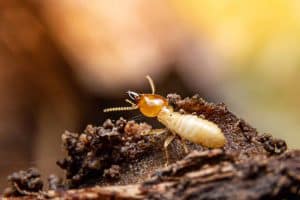Arizona, although a great place to live with scenic views and a relatively low cost of living, is one of the worst states for pests. The hot and dry desert terrain welcomes a multitude of pest problems, especially termites, spiders, and scorpions. Unfortunately, infestations can still occur all year round, even outside of the scorching summer.
The weather plays a significant role in how insect problems arise. By paying attention to the weather, you can better be on guard for and protect against insects in your home or business. Urban Desert Pest Control, the family pest control company, offers valuable insight in this article into how weather affects insect activity and possible infestation. And if you ever need help with a pest problem, don’t hesitate to contact our friendly and experienced team for a free inspection.
Heat
Insects thrive in the warmer months of the year. As cold-blooded critters, insects depend on sunlight to maintain their body heat and use more energy. Insects therefore also reproduce more in the spring and summer, so there are more insects being born and wandering around with their new energy. Larger insects, including centipedes and spiders, naturally prey on smaller insects, which means that the heat can be doubly problematic since there are two kinds of creepy crawlers roaming around looking for food and water.
Simply put, heat and even mild temperatures are the prime times for insects and potential problems in your house or business. So, March is the best time to be on the lookout for any signs of infestation, and, like many problems, it’s smart to get in front of it with a professional before it’s too much to handle. The difficult insects in heat are particularly fleas and ticks, ants (which are a dual threat and also appear in the cold), centipedes, crickets, and wasps and bees.
Drought
What goes along with excessive heat is drought, which can be the most problematic for insect infestations. Because of dry weather and a lack of water that produces organic nourishment for insects, they take it upon themselves to go look elsewhere, which may mean they end up inside your home. Even when you already have enough to worry about during a long drought, insects might be the next thing knocking on your door.
Rain
As expected, there are several moisture-loving insects, including cockroaches, stink bugs, and termites. When it’s been rainy for several continuous hours or days, you can expect to see more activity from these critters. On the flip side, some insects do not like excessive water and may seek shelter indoors. These pests primarily include spiders and ants. Ants can lose their nest to a flood, which means that an entire colony may quickly be looking for an indoor refuge.
Cold
Just when you think you are safe from insects in the colder months, you sadly aren’t out of the woods. Because insects are cold-blooded, they have to actively seek a place for hibernation or shelter in order to stay warm in colder temperatures. So, they may (hopefully) bury themselves underground or try to enter a house for comfort and warmth. Be on the lookout for spiders and cockroaches during winter.
Prepare For The Storm With Urban Desert!
In case you can’t tell, you should always be on alert to protecting your home from insects, no matter the weather. While some may be more relaxed in some seasons, others are active and can quickly cause problems. Insects frequently enter a home either for sources of food, which can be organic food crumbs or moist wood, or for darkness and warmth in colder months. Knowing the reason and when for a pest’s infestation can help keep you, your family, or employees on alert to any signs of infestation.
Just like with any pest infestation, it is smart and worth your time and energy to hire a professional to quickly and effectively handle the issue. Urban Desert Pest was founded in 2015 to bring superior customer service and exemplary results to all of our clients. We encourage you to take a look at our great reviews and give us a call at 602-399-9629. You can even schedule regularly-occurring preventive and proactive treatments, so you won’t have to worry about insects, even depending on the weather change.












